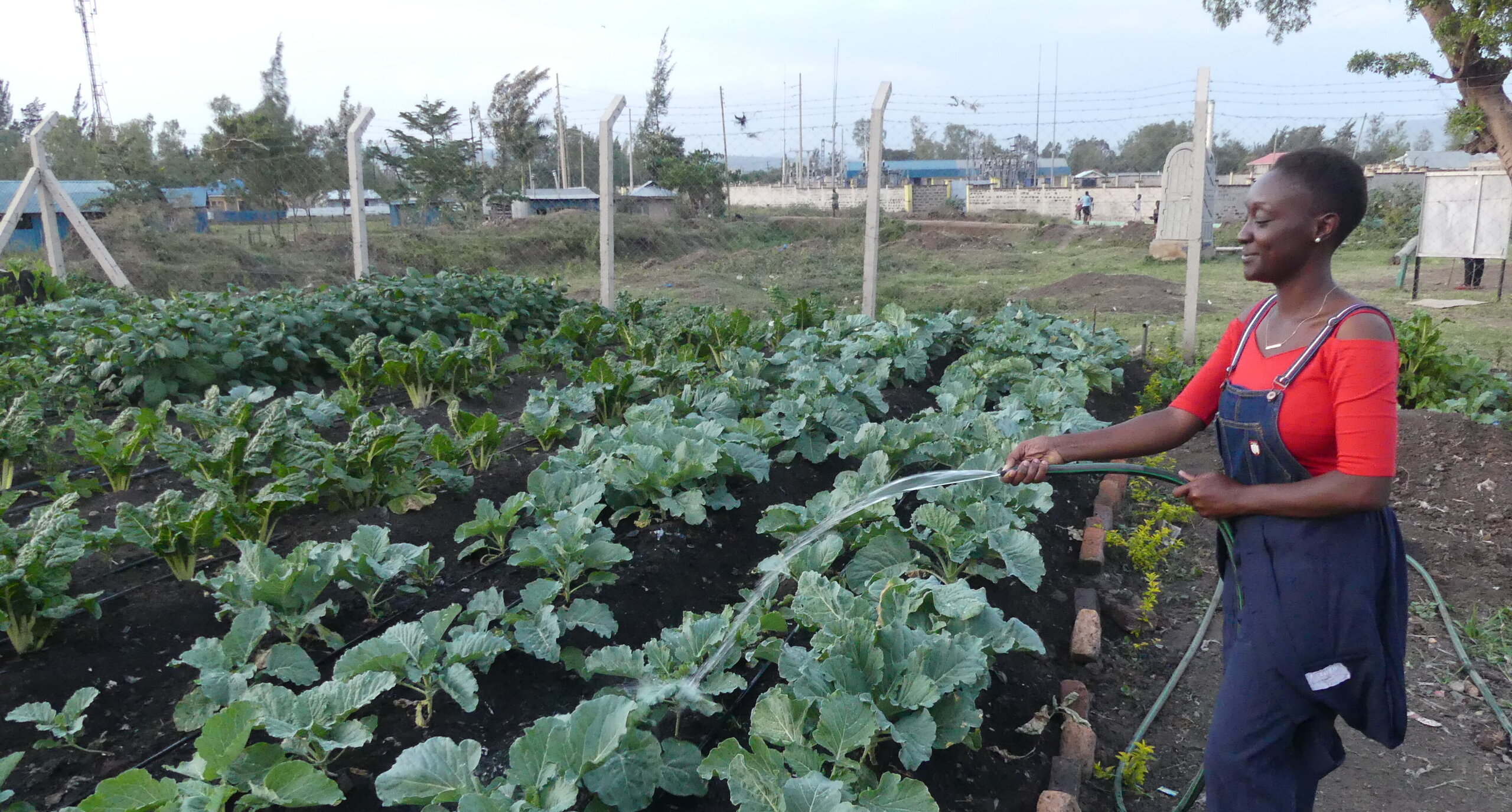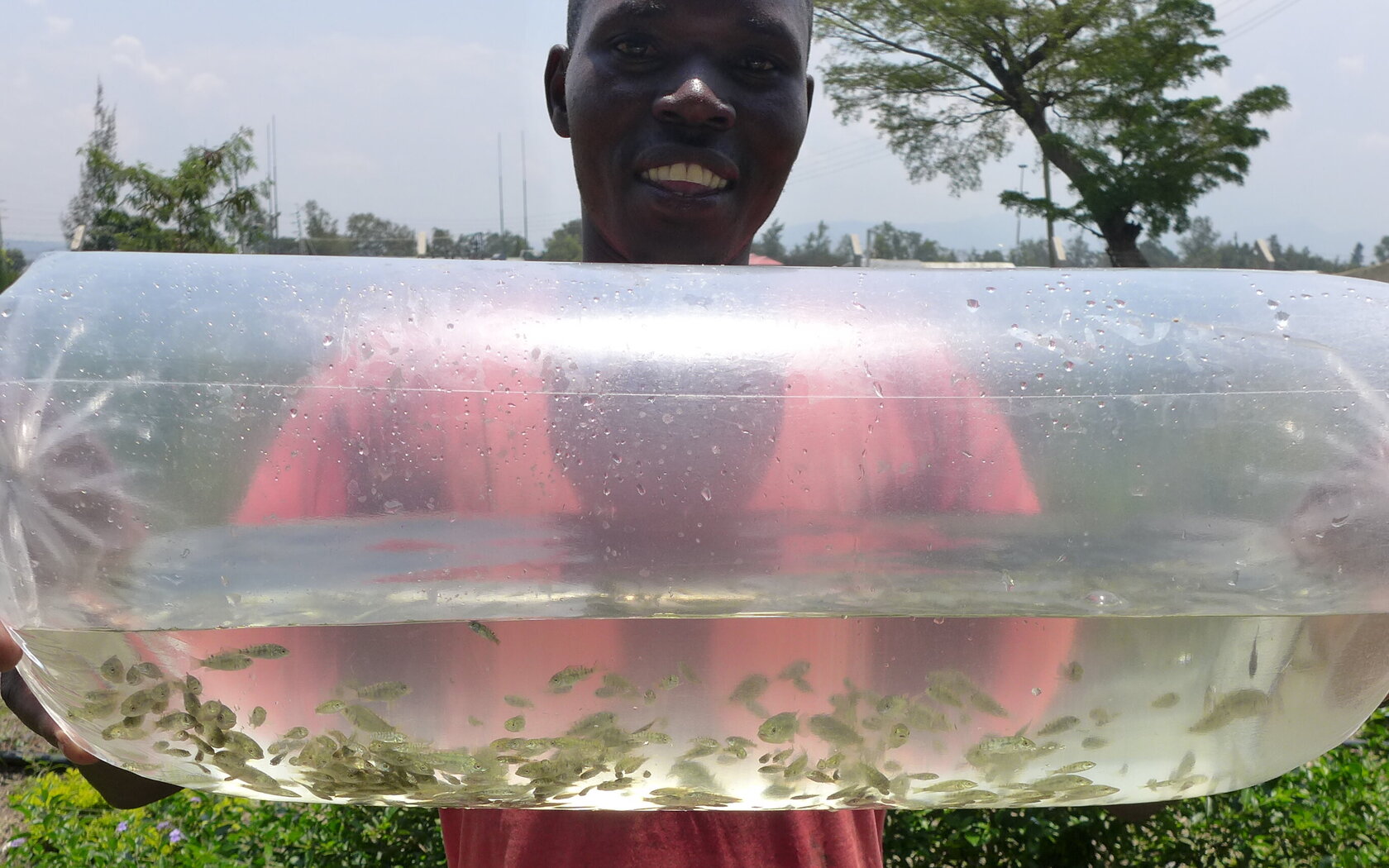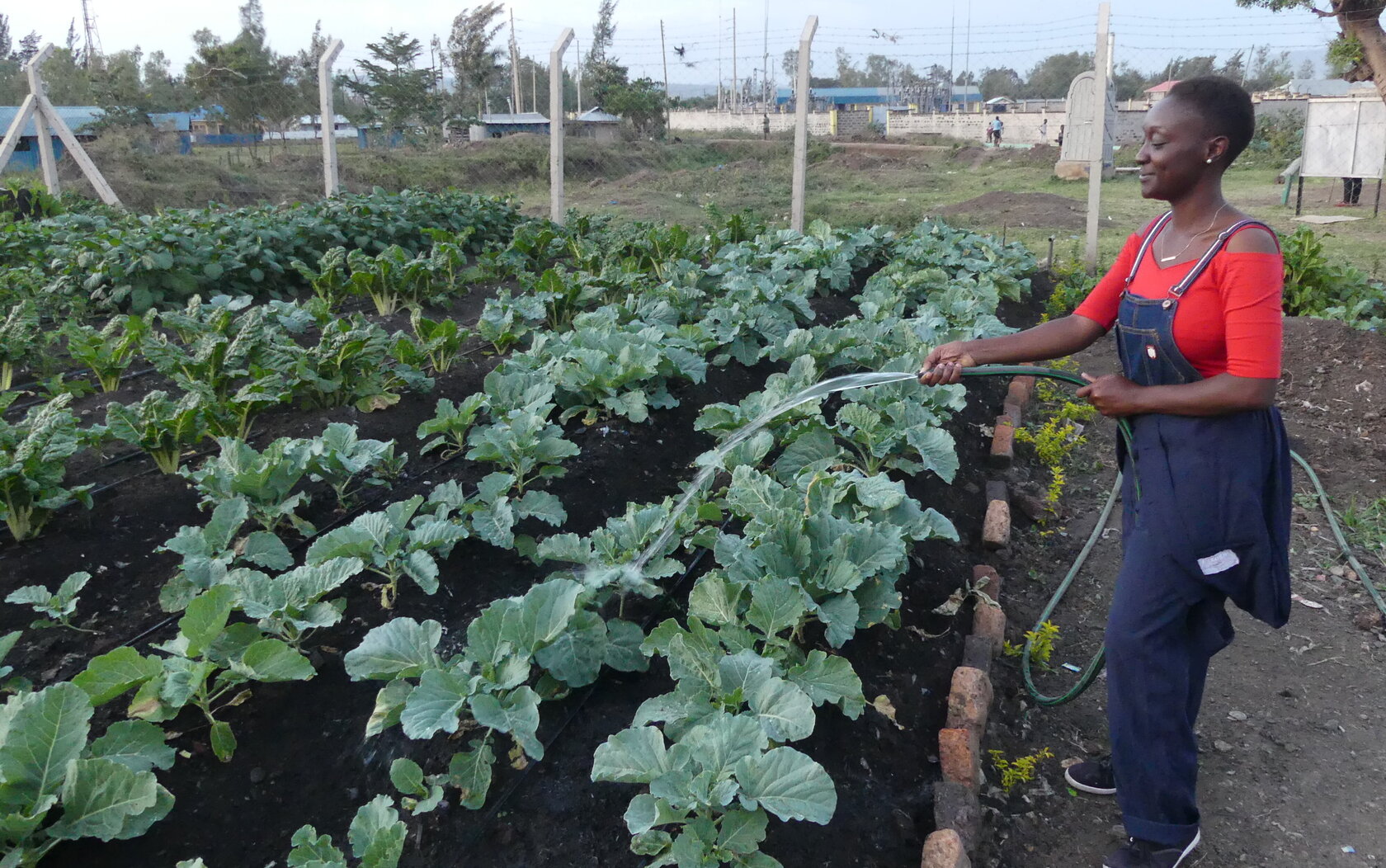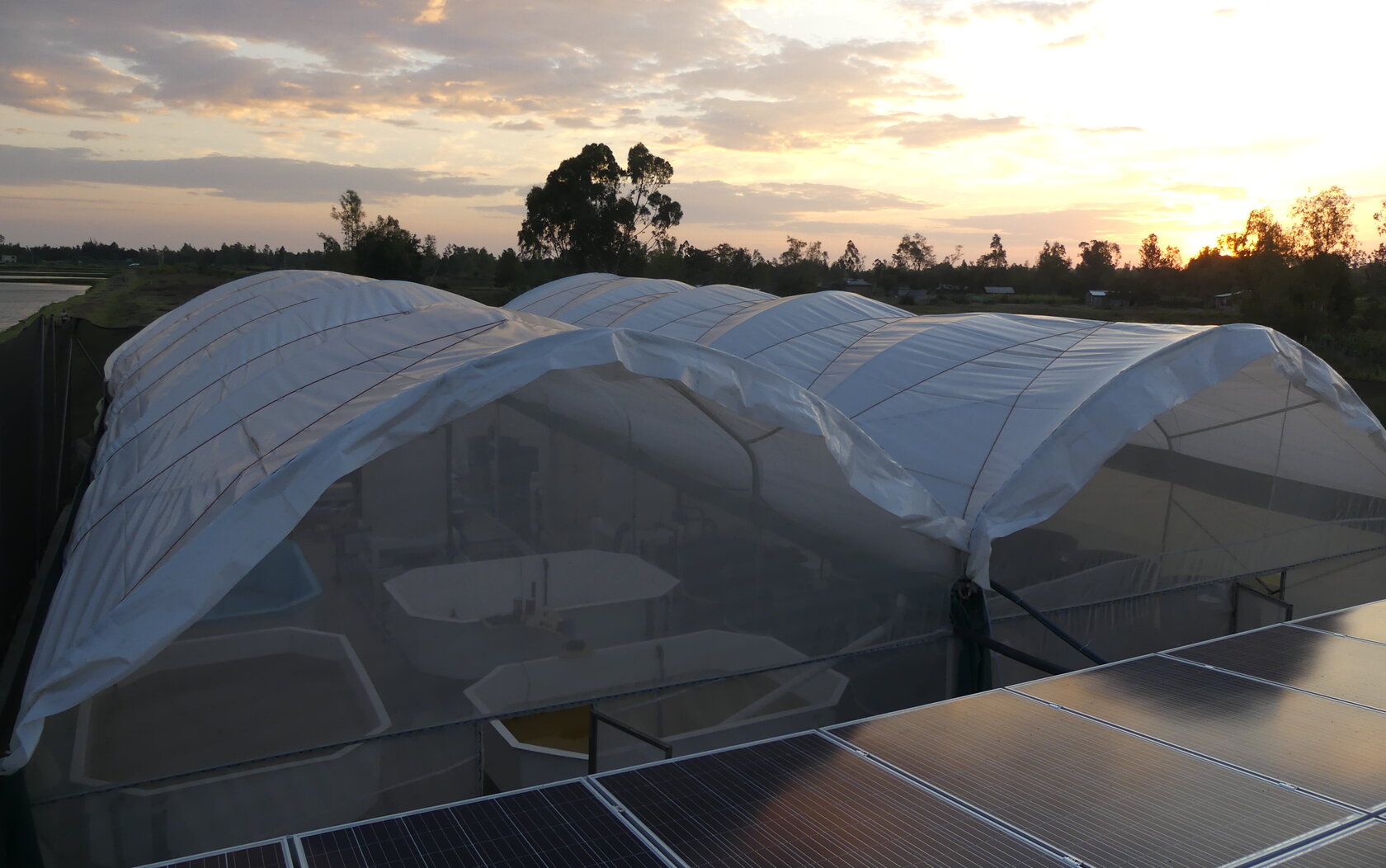
Sustainable Agriculture in East Africa
International research consortium PrAEctiCe led by HKA receives 7 million euros in EU funding over 3.5 years
December 6, 2022
In November 2022, representatives of Karlsruhe University of Applied Sciences (HKA) and 15 partner institutions met with EU Commission representative Adelma Di Biasio for the online launch of the international EU research project "Potentials of Agro-ecological practices in East Africa with a focus on Circular water-energy-nutrient systems", PrAEctiCefor short. The project is led by Prof. Dr. Jan Hoinkis from the Faculty of Electrical Engineering an Information Technologyat HKA. Further project partners are
- Steinbeis 2i GmbH
- from Slovenia the University of Maribor
- from Sweden the University of Gothenburg
- from Uganda the Makerere University, the Uganda Martyrs University, the National Agricultural Research Organisation, the Regional Universities Forum for Capacity Building in Agriculture and the Alliance for Food Sovereignty in Africa
- from Kenya the Maseno University, the Ministry of Agriculture, Livestock and Fisherie and the Africa Agribusiness Academy
- from Tanzania the Organisation Sustainable Agriculture Tanzania and
- the enterprises AquaBio Tech from Malta, Aquagri from Portugal and Prototipi from Nigeria
When it comes to sustainability, global food systems face numerous challenges that could also threaten food and nutrition security. The Farm to Fork strategy at the heart of the European Green Deal is also central to the success of the UN Sustainable Development Goals (SDGs). Sustainable agriculture is a key element of this strategy. Continued rapid population growth in Africa is putting additional pressure on the continent's food systems, as a recent report by the Food and Agriculture Organization of the United Nations (FAO, 2021) shows. It emphasizes the importance of agricultural and food systems in achieving SDG2 "No Hunger." Agroecology (AE), as an integrated approach that simultaneously applies environmental and social principles to the design and management of food and agricultural systems, was launched by FAO and is attracting increasing interest worldwide as an effective response to climate change and food systems-related challenges.
The EU project PrAEctiCe explores the potential of such AE practices in East Africa with a focus on circular water-energy-nutrient systems. The project concentrates on the needs of East African smallholder farmers and focuses on quantifying the impact of agroecological practices and providing evidence that they not only bring environmental and social benefits, but also ensure the financial viability of farms. Measures and methods will be developed for East African smallholder farmers to help them make the agroecological transition. In the process, a concept with great potential for efficient agriculture, combined with minimal impact on the climate, will be put into practice. It will provide a decision support tool for AE extension agents to select the most appropriate combination of agroecological farming methods in a local context.
PrAEctiCe will focus in particular on integrated systems of fish farming (aquaculture) and agriculture (Integrated Aquaculture Agriculture, IAA). Integrating aquaculture with crop production in mixed cropping systems is key to sustainable agricultural production systems because of the environmental and agricultural added value. This approach helps conserve natural fish stocks, reduces the use of artificial fertilizers, decreases water consumption, and reduces wastewater pollution. It also provides farmers with social and economic benefits, such as risk reduction through diversification, reduced external dependencies, and higher value-added agricultural byproducts as feed ingredients. One example of IAA systems is so-called aquaponics, which couples aquaculture with hydroponics (cultivation of crops in water) in one cycle. Here, wastewater from fish farming can be used as nutrients for the plants.
IAA systems are relatively new in sub-Saharan Africa. "However, in this region, IAA has the potential to become a key technology," said project leader Prof. Dr. Jan Hoinkis, "that can transform agriculture and improve food security in the wake of climate change." Challenges to implementing IAA projects in East Africa include the lack of electricity in many rural areas, the cost and accessibility of fish feed, and the high cost of setting up infrastructure, which discourages many farmers from adopting IAA. The newly developed systems will be implemented, evaluated, and further developed at three sites in Kenya, Uganda, and Tanzania in the form of real laboratories (living-labs) as solar-based circular water-energy-nutrient systems. The data basis is obtained through appropriate intelligent sensor technology and satellite data, supplemented by statistical data and results of surveys with local stakeholders. At the Kisumu site in Kenya, an existing pilot plant for sustainable fish farming (closed-loop aquaculture system) can be expanded accordingly. This was developed through the EU project VicInAqua , which was led by HKA, and is used as a demonstration plant for breeding juvenile fish for the local market. Here, a significant part of the energy to operate the plant is generated by photovoltaics. In addition, treated municipal wastewater is reused to supplement water losses in the recirculation system.
PrAEctiCe's long-term goal is to create attractive agricultural business opportunities in agroecology, especially for the younger generation in East Africa, by combining traditional agricultural knowledge with modern digital tools.


